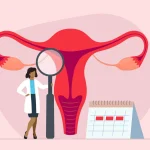Want to have sex without protection? Here are safe days to have sex without getting pregnant
Page Contents
How do ovulation and pregnancy work?
For many women, ovulation occurs around day 14 of their cycle. However, having sex without a condom or another barrier method during your period or outside your expected fertile window isn’t a guarantee that you won’t get pregnant.
Sperm can live inside your uterus for up to 5 days after having sex, and pregnancy can only occur if there is sperm in your uterus or fallopian tubes when you ovulate.
Ovulation occurs when an ovary releases a mature egg. About once a month, an egg matures and the ovary releases it into the fallopian tube. It then heads toward sperm in the fallopian tubes and uterus.
Before arriving to meet the egg, the sperm must travel from the vagina, through the cervix of the uterus, into the uterine cavity, and into the fallopian tube to fertilize the egg.
It can take anywhere from about 45 minutes to 12 hours for this to occur. Sperm has a lifespan of about 2 to 5 days after entering the vagina upon ejaculation.
An egg is viable between 12 and 24 hours after it leaves the ovary. Sperm can stay alive up to 5 days after having sex. Implantation of an egg, which happens after fertilization, usually takes place 6 to 12 days after ovulation.
You can get pregnant immediately after your period. That can happen if you have sex toward the end of your cycle and are approaching your fertile window. On the other hand, the probability of getting pregnant right before your period is low.
If you track ovulation and wait 36 to 48 hours after ovulating, the chance you’ll conceive is low. The probability of pregnancy decreases the further in the month you are from ovulation.
If pregnancy doesn’t occur, the uterine lining will shed and your menstrual period will start.
Tracking your fertile window
Tracking your fertile window is a way to determine your “optimal” time to get pregnant. It can also help prevent pregnancy if you aren’t trying to conceive. As a method of reliable birth control, it can take several months of recording your monthly cycle to figure out your fertile window.
How to track your fertile window
The following method will help you find out your fertile window.
- For 8 to 12 months, record the day you start your menstrual period and count the total number of days in that cycle. Note that the first full flow day of your menstrual period is day 1.
- Then write down the longest and shortest number of days from your monthly tracking.
- Find out the first day of your fertile window by subtracting 18 days from the length of your shortest cycle. For example, if your shortest cycle was 27 days, subtract 18 from 27, and write down day 9.
- Find out the last day of your fertile window by subtracting 11 from the length of the longest cycle. For example, if the longest cycle length was 30 days, you’d get day 19.
- The time between the shortest and longest day is your fertile window. In the above example, it would be between days 9 and 19. If you’re trying to avoid pregnancy, it’s important to avoid having sex without a condom or other barrier methods during those days.
How to use your fertile window as birth control
Ovulation will occur one day during your fertile window. The egg released is viable for 12 to 24 hours. That doesn’t mean you can get pregnant every day during this window. But if you’re trying to prevent pregnancy, it’s a good idea to abstain from sex without a condom or another barrier method during the entire fertile window.
Is the fertile method effective?
If you have very consistent cycles, knowing your fertile window can help prevent pregnancy. But keep in mind that your cycle days can still change each month. Factors like stress, diet or heavy exercise can affect the number of days in your cycle. The day of ovulation can also change every month.
Tracking your ovulation is usually a more effective way to help you get pregnant. If you’re trying to avoid pregnancy, talk with your doctor about the best birth control for you.
 1935
1935







